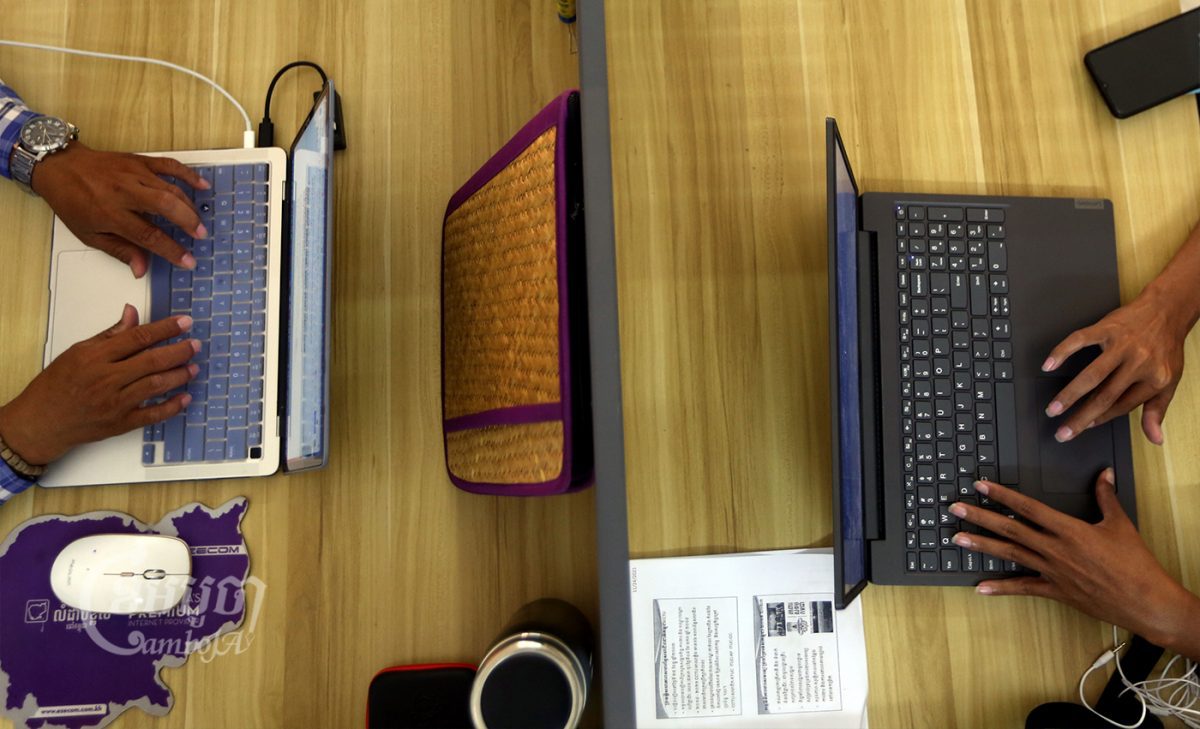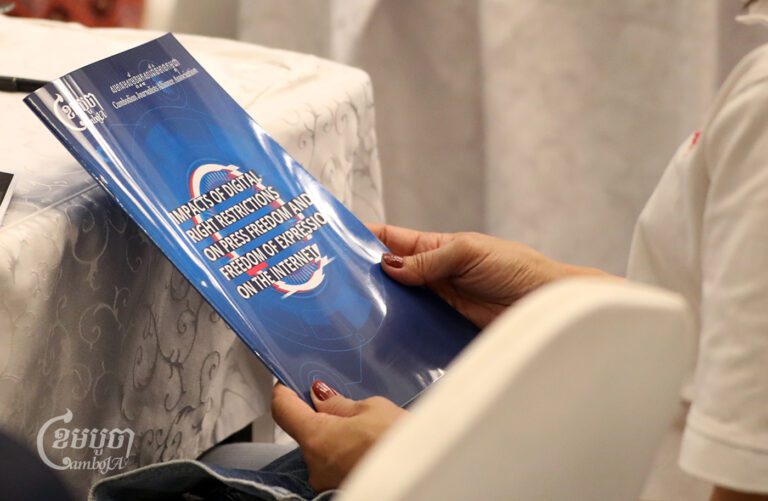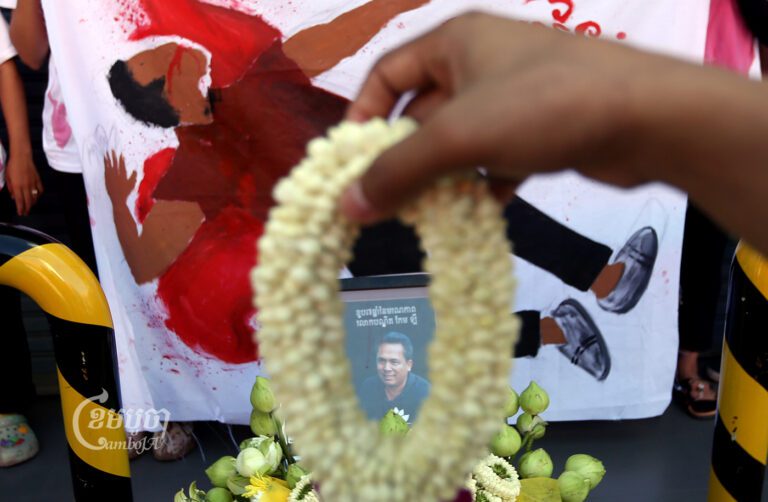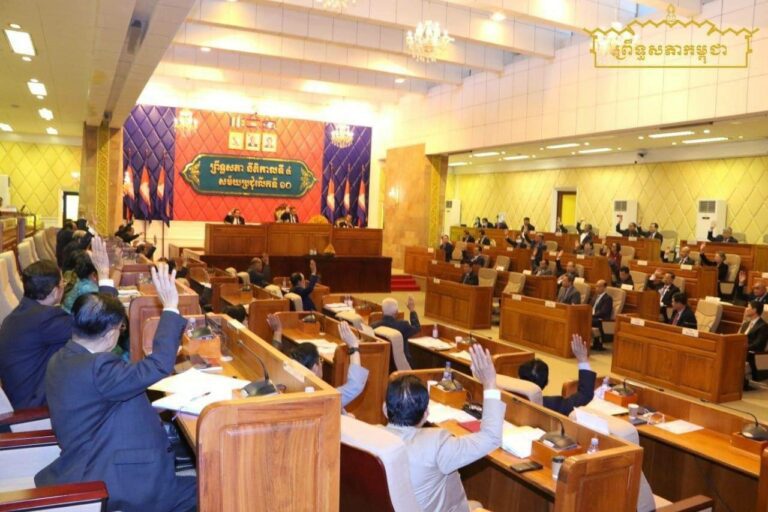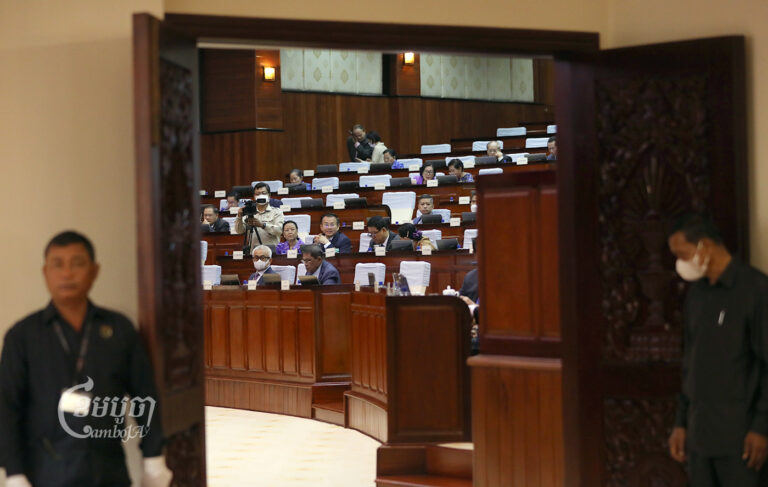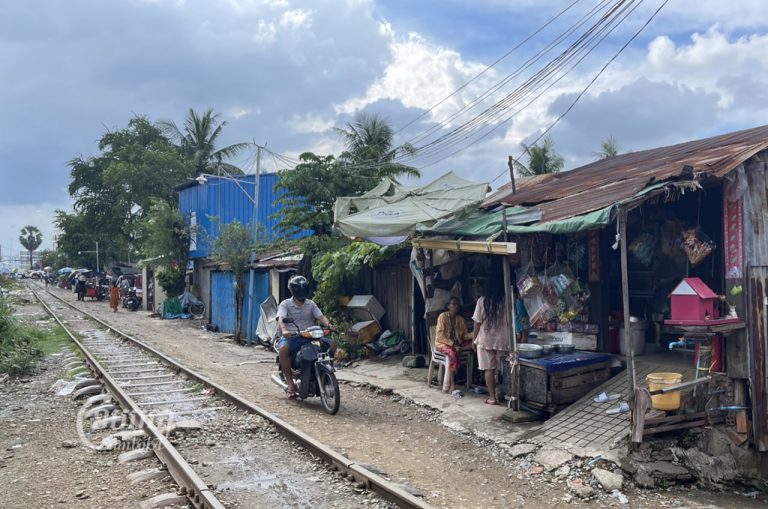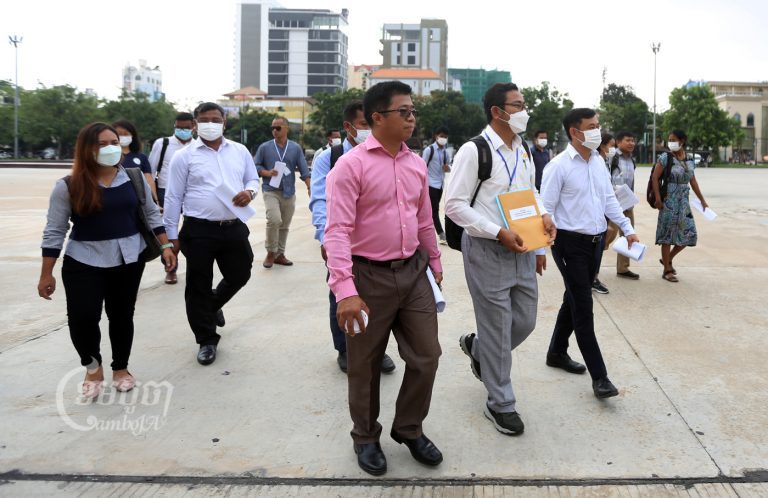Civil society organizations have expressed concerns over the rights of Cambodians to freedom of expression online, after the government enacted new laws to regulate the internet.
Soun Yuthyia, director of advocacy for the Cambodian Center for Human Rights (CCHR), said at the National Conference on Digital Rights and Internet Freedom on January 26 that the government had passed a number of laws that go against human rights during the pandemic.
“Such laws are the State of Emergency Law, the National Internet Gateway, and the law on preventive measures against the spread of Covid-19 and other severe and dangerous contagious diseases,” said Yuthyia.
The government issued the sub-decree on the National Internet Gateway in early 2021 and later drafted a law on cyber crime and cyber security, which further concerned civil society organizations.
The national forum was attended by 14 NGOs, including the Cooperation Committee for Cambodia (CCC), the Advocacy Institute and Policies (API), Center for Alliance of Labor and Human Rights (CENTRAL), Cambodian Center for Independent Media (CCIM), and Cambodian Journalists Alliance Association (CamboJA).
Yuthyia continued that the draft legislation on public order and online crime, as well as the Foreign Interference Law, are also worrying.
“Even though we do not yet have a law on the internet gateway, the government enforces various laws against those who express themselves online – and the most popular penal code charges used against ordinary people, civil society organizations, human rights defenders, and forest protection activists are [the spreading of] fake news, public insults, and incitement to commit crimes,” said Yuthyia.
He added that many of the terms employed in the law are too vague, such as what kinds of expressions affect “public order” and “social security”. He also said that enacting these internet regulation laws is just the beginning of a slippery slope, and soon, the Cambodian government will follow China’s path in enacting more laws curbing freedom of speech.
Pradeep Wagle, the UN High Commissioner for Human Rights in Cambodia, said that there must be transparency in such laws.
“The question is whether there is a balance between these rights [human rights] and the draft law. International human rights obligations need to be considered fairly and adequately,” said Pradeep.
The UN officer also raised privacy issues, questioning who would have access to the data on internet users collected by operation of the law, and what would happen if citizens’ data were released without their permission.
According to Yuthyia, the Cambodian government accepted many recommendations from the UN in 2019 on respect for women’s rights, human rights, and children’s rights, but it has yet to implement them. He also said that laws that are unconstitutional and contrary to human rights principles must be urgently amended to comply with international obligations.
Pradeep said that many of the issues raised in the national forum were similarly raised in the latest UN annual public report on the state of human rights in Cambodia, which was presented to the UN Human Rights Council last October.
In March, another presentation and discussion on human rights progress in Cambodia will also be held in Geneva.

Pa Chanroeun, director of the Institute of Democracy of Cambodia, said that the internet may be used in good and bad ways, so there must be a law to control how it is used. But he doubts whether the introduction of the law comes from the will of the people, and whether it is just or constitutional.
“Digital or internet freedom is also a human right, so all laws designed to protect and punish internet users must guarantee the principles of human rights, especially the right to freedom of expression, respect for privacy, and the right to access to information,” he said.
He believes that if the government wants the Cambodian people to actively participate in “Industry 4.0” or “Government 4.0”, it must respect and protect their rights – or the benefits will go entirely to the government. He said the authorities must show its citizens what should and should not be done, rather than restrict their freedom for expression or freedom of access to information on the internet.
Pradeep said that the laws must also provide adequate protection for citizens’ privacy. He added that it’s important they understand what their rights are and how they can be protected, and where they can go to for help when their rights are violated.
However, Yuthyia, CCHR’s director of advocacy, believes that when the internet gateway law is passed, people will be afraid to speak out or even share information.
“This law, if not repealed, must be re-enacted to comply with Cambodia’s human rights obligations,” he said. “If this law is implemented, [people will be] not only afraid to share, but also to read what is shared.”
Civil society organizations at the national forum encouraged Cambodians to learn about their digital rights and the evolution of the legal framework that governs them. They also want the government to openly review the internet gateway law and get more recommendations from relevant stakeholders before drafting any law.
Responding to their concerns, Chea Vandet, Minister of Post and Telecommunication, told local media Freshnews in an audio interview on January 28 that the national internet gateway is not a tool for capturing data from internet users or threatening internet freedoms.
“The internet gateway was created to coordinate and control the internet connection in the country and abroad. It also has two main points. The first one is the internet gateway in the country created for the exchange of internet data in the country. The second one is the internet gateway abroad created for the exchange of internet data in the country and abroad,” said Vandet.
He added that the internet gateways will be created in more cities throughout Cambodia – such as in Sihanoukville province, Poipet city, Bavet city, and in Phnom Penh city. In the future, Cambodia will consider more gateways depending on need.
“The national internet gateway is a sub-decree referring to the telecommunication infrastructure development that connects with telecommunications operators to connect to the internet in the country and internationally, without any provisions in this sub-decree stipulating the collection of user data and restrictions on freedom of expression,” said Vandet.
However, he said there are many reasons for introducing this law. The first is to make national revenue collection more efficient. The second is to protect users by participating in the prevention of illegal online gambling, cyberbullying, child abuse, as well as fraud and cybercrime. The third is to strengthen the efficiency and stability of the internet connection in the country and abroad. And lastly: to protect the legitimate interests of internet operators.
Vandet also said that the ministry is in the process of preparing draft legislation on internet privacy and security, and that it may consider consulting relevant NGOs to see how the draft laws can be improved.


